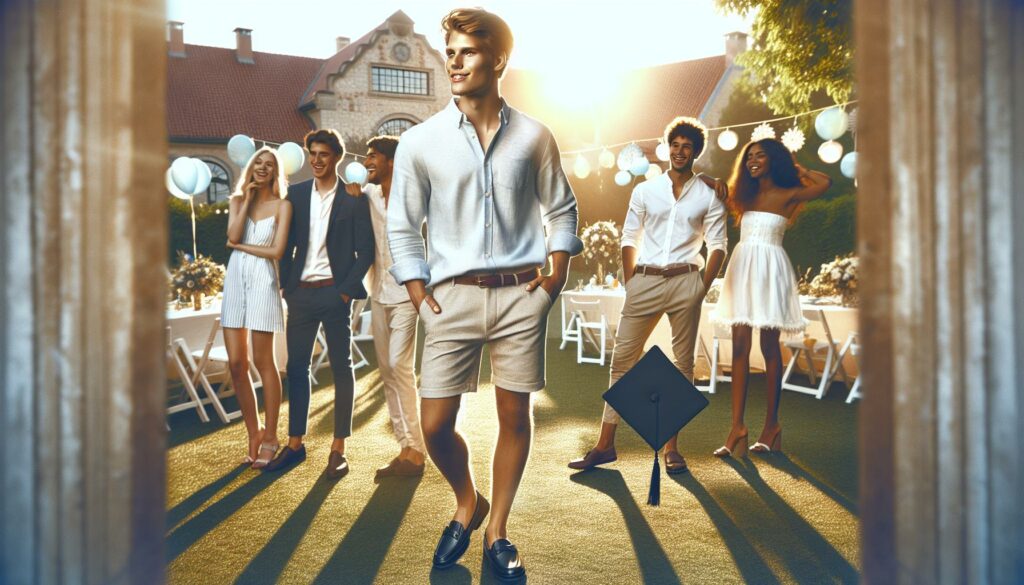Attending a formal event often comes with specific expectations, and one of the most significant aspects of preparing for such occasions is adhering to formal event dress codes. Dress codes are designed not only to create a unified and aesthetically pleasing atmosphere but also to show respect for the event and its host. Whether it’s a wedding, gala, or corporate gathering, understanding and following the dress code is crucial to making the right impression. One key reason to pay attention to formal event dress codes is that they set the tone for the event. When everyone follows the dress code, it ensures that the gathering remains elegant and cohesive, and no one feels out of place.
Understanding Different Formal Dress Codes
Formal events often feature a wide range of dress codes, and each comes with its own set of rules. The most common formal dress codes include black tie, white tie, business formal, and cocktail attire. A black-tie dress code typically calls for men to wear a tuxedo, while women are expected to wear evening gowns or elegant cocktail dresses. On the other hand, a white-tie event is the most formal, requiring men to wear a tailcoat with formal trousers and women to wear floor-length gowns. Business formal attire, which is common for professional events, involves a suit and tie for men and a conservative dress or suit for women.

Cocktail attire, while slightly more relaxed, still demands a polished and sophisticated appearance, typically requiring men to wear a suit and tie, while women wear cocktail dresses or elegant separates. Regardless of the event, understanding the nuances of these dress codes will help you decide what’s appropriate for each occasion.
The Social Significance of Dress Codes
Dress codes at formal events are not just about aesthetics; they also play a significant role in social interaction. When you adhere to the dress code, it signals that you understand the social norms of the event and are respecting the host’s wishes. Conversely, failing to dress according to the code can create awkwardness and may even be seen as disrespectful. People often make judgments based on appearance, and how you present yourself can affect how others perceive you. Dressing according to the dress code shows that you have put thought and effort into your appearance, which can result in positive impressions and foster a sense of belonging within the event.
Avoiding Discomfort and Embracing Confidence
Wearing the appropriate attire for a formal event can also prevent discomfort. If you wear something too casual or too flashy, you may feel out of place and self-conscious. On the other hand, following the dress code ensures that you blend in seamlessly with the other guests, which can help you feel more at ease. When you’re dressed appropriately, you’re able to focus on enjoying the event and engaging with other guests rather than worrying about how you look.
Dress Codes Reflect the Event’s Purpose
The type of formal event you’re attending often dictates the appropriate dress code. For example, a corporate gala may require formal business attire, while a wedding may have a more relaxed but still elegant dress code.

Understanding the purpose behind the dress code helps you dress appropriately and ensures that you honor the spirit of the event. For instance, a wedding is a celebration of love, and the dress code is often designed to create a festive and romantic atmosphere. Meanwhile, a formal business event may have a dress code designed to maintain professionalism and create an environment conducive to networking.
The Practical Benefits of Following Dress Codes
Aside from the social and emotional benefits of dressing appropriately, there are also practical reasons to follow formal event dress codes. By adhering to the dress code, you eliminate the stress of deciding what to wear at the last minute, allowing you to plan your attire well in advance. When the dress code is clear, it also saves time, enabling you to focus on other important aspects of the event, such as preparing your speech, networking, or reviewing the agenda. Furthermore, knowing the dress code in advance helps you avoid costly and rushed last-minute shopping or costly alterations to your outfit, ensuring you feel comfortable and confident without added pressure.
Final Thoughts
Following dress codes at formal events is not just about wearing the right clothes; it’s about showing respect for the event, the host, and the other guests. It helps you make the right impression, ensures you feel confident, and fosters a cohesive atmosphere. Understanding the importance of formal event dress codes is essential to navigating these occasions with ease and grace. Whether it’s a black-tie gala or a corporate dinner, taking the time to dress appropriately is a simple yet powerful way to contribute to the success of the event and enjoy the experience to its fullest.



